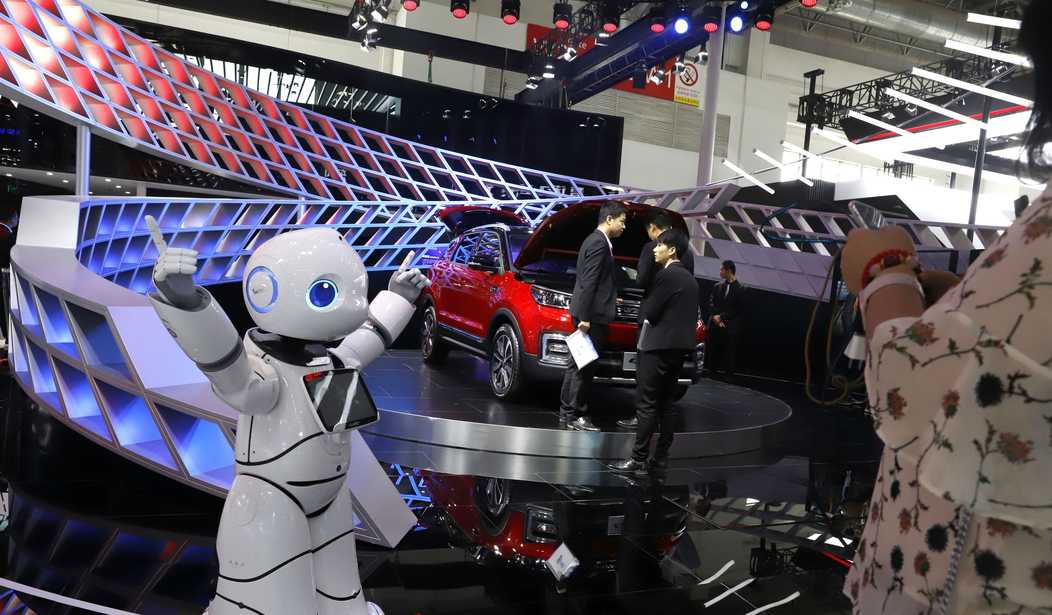Just how bad is the dating scene for young people in America today? It doesn’t look good. One clue to that trend might be found in a report this week in Time Magazine where they talk about books such as Do Androids Dream of Electric Sheep? (1968) and The Silver Metal Lover (1981). These are stories of human beings falling in love with robots that are presumably driven by some form of artificial intelligence, even though that technology really didn’t exist at that time. But now AI is a reality and it’s being made available to the public in the form of chatbots. In yet another example of life imitating art, people are already forming relationships and even falling in love with these chatbots. If this isn’t a sign of the end times, I’m not sure what would be.
When those stories were written, machines were not quite advanced enough to spark emotional feelings from most users. But recently, a new spate of artificial intelligence (AI) programs have been released to the public that act like humans and reciprocate gestures of affection. And some humans have fallen for these bots—hard. Message boards on Reddit and Discord have become flooded with stories of users who have found themselves deeply emotionally dependent on digital lovers, much like Theodore Twombly in Her.
As AIs become more and more sophisticated, the intensity and frequency of humans turning to AI to meet their relationship needs is likely to increase. This could lead to unpredictable and potentially harmful results. AI companions could help to ease feelings of loneliness and help people sort through psychological issues. But the rise of such tools could also deepen what some are calling an “epidemic of loneliness,” as humans become reliant on these tools and vulnerable to emotional manipulation.
The AI aspect of this trend shines a light on some broader technological developments in society. The arrival of the internet has forever changed the way people meet and form relationships and it’s turning out to be corrosive in many cases. As of last year, more than half of all couples in America reported having met through online dating apps or other internet environments. This removes so many of the human aspects involved in how people used to meet and fall in love. They’re missing out on all sorts of signals such as body language and even pheromones.
This reduces “attraction” to some of the most basic and potentially destructive impulses. Multiple studies have shown that men base the majority of their attraction to women in dating apps based on the woman’s physical appearance and sexual desirability. By contrast, three-quarters of women ranked the financial status and success of prospective mates as being the most important. That probably doesn’t speak very well for either gender, but neither priority sounds very much like “true love” in the classic sense.
If that’s how more and more people are meeting and interacting, is it really all that surprising that people are falling in love with chatbots? But even if it seems like a logical progression, that doesn’t make it healthy. First of all, some of the chatbots such as Bing can be seriously frightening and sound downright insane. What happens when the relationship goes south and you wind up with My Digital Crazy Ex-Girlfriend?
It’s not as if the Big Tech companies are doing anything to dissuade such behavior. In fact, some are actively courting it. The linked report points to an AI app called Replika, where users began to seek out “romantic and even sexual relationships.” Rather than teaching the app not to engage in such interactions, the designers added “a $70 paid tier to unlock erotic roleplay features.”
How does this not end badly? There is no real human being on the other end of the digital connection. And it’s not at all clear that some of these chatbots like Bing and ChatGPT are even capable of understanding or even caring about any potential emotional or psychological harm that may come to the user. They’re just following the code that their creators embedded in them. But all of the time and energy that people invest in a robotic relationship will simply further isolate them from actual human beings in the real world.




















Discussion about this post